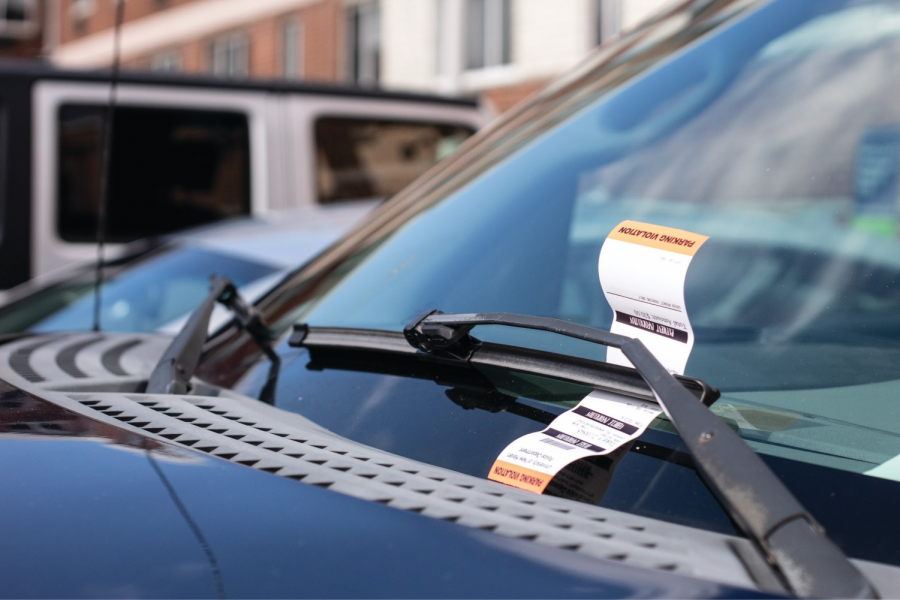The historically bad parking on campus keeps getting worse
It is a tale as old as cars: everybody complains about parking. Every few years, an article in the Charger Bulletin surfaces about how bad parking is at the University of New Haven.
In the early weeks of the fall semester, one thing has become abundantly clear: parking is still a disaster.
Commuter students commonly find themselves circling the lots hoping a spot will open up. The clutter is most noticeable during morning classes, when the traffic on campus often causes students to be a few minutes late.
This reflects an unforeseen outcome from the COVID-19 pandemic: the reintroduction of in-person courses and free commuter parking passes is a recipe for a traffic jam.
University associate vice president of public safety Ronald Quagliani said that parking issues like this typically arise early in the year as students adjust to the campus.
“It typically takes a few weeks for everyone to get acclimated to where they can park,” Quagliani said.
But is this just an acclimation issue, as the issue persists three weeks into the semester? While the university has expanded in both square footage and student population, parking has failed to follow. In fact, the addition of new buildings has caused it to become even more congested.
Junior dental hygiene major Brooke Ross said that residential students face the same problems.
“There are just not enough spots and it’s first come, first serve,” Ross said. “Lots around campus fill up quickly and it can be impossible to find spots on some days.”
This is a problem that dates back a few years when construction of the Engineering and Science Magnet School began, which was built on a former parking lot, taking more spaces away from students. The new Bergami Center is another new building replacing parking.
Of course, nobody will complain about new buildings, but can we let parking catch up? It seems as though the issues of student parking have lagged behind in the campus’ development.
This has spilled over onto North Campus, too, as the large lot has been unusually filled with cars. Much of this can be contributed to construction of the new athletics building, which is taking spots away once again.
In response to the expanding campus, the university has adopted the “perimeter parking” model. The Railroad Salvage and Wade Street lots are perimeter options, but come with a long walk or unreliable shuttle ride. Quagliani said that parking in these lots is typically available all day, with the Courtesy Van servicing students who park there.
Though the vans help in those lots, it can be tough for students running late to park there and make it on time. This leads to a difficult decision: be late to class or get a ticket?
Ticketing is another aspect of the parking problems. Though, as Quagliani said, this is an acclimation period for parkers, the university has remained more than willing to give tickets. This frequently happens in front of the bookstore, where commuters will go in hopes of finding a spot. Even though this lot is usually vacant, commuters are not allowed to park there during the day, and are in jeopardy of facing a $20 ticket if they do.
With limited space, these problems are difficult to find a solution to. However, with no construction on the main campus for the time being, it is time to find a real fix.







Jade Hernandez • Sep 14, 2021 at 5:50 pm
As a commuter student, I completely agree the parking situation is a disaster. Everyday I park somewhere different because I am constantly struggling to find parking on or off campus. Walking from North to main campus is an option but not ideal when you’re running late. However, recently there has been no parking at North for commuters. The construction going on at North currently doesn’t help the situation. I believe if the university focused on making some restrictions on who can have their cars on campus, it would help save some aggravation. Also, suggesting to raise the price of passes for parking isn’t ideal for college students. It’s already hard enough for students to pay tuition, buy books and buy natural necessities such as food, water and gas. What sense does it make to charge more for parking when the solution could be to simply expand parking entirely because the population of the school is increasing.
JD • Sep 14, 2021 at 10:00 am
How much do the students pay for parking? Are there public transit options available? The key to the solution is in doing things differently: stop encouraging students to come to the campus with cars. Do this by charging more for parking and providing free public transit to main campus points. Failure to do so is simply repeating the same mistakes again and again.